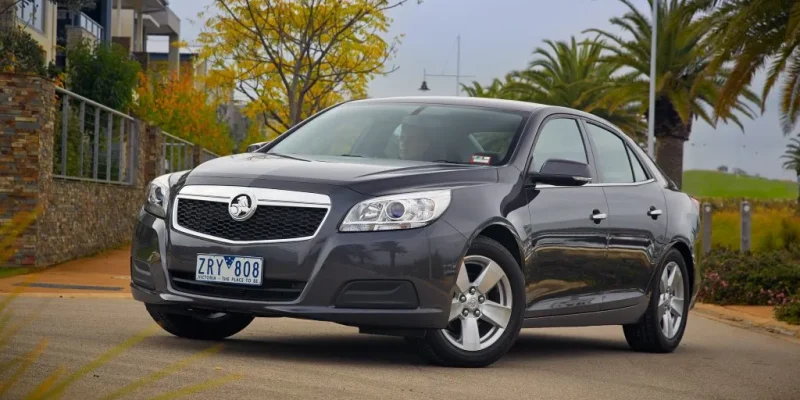The Driver Knowledge Test (DKT) is the first critical step towards obtaining a driver’s license in New South Wales, Australia. This computer-based test assesses a candidate’s understanding of road rules and driving knowledge essential for safe driving. While the test is straightforward, many learners underestimate its difficulty and make common mistakes that result in failing scores. Avoiding these pitfalls can help you feel more prepared and confident, increasing your chances of passing on the first try.
Here are the top ten mistakes to avoid during your DKT test, along with tips to ensure success.
1. Underestimating the Importance of Preparation
Many candidates assume they can breeze through the DKT test without much preparation. While the test questions are based on general road rules, they often include specific scenarios and details that can trip up those who haven’t studied. Relying solely on prior knowledge or overconfidence can lead to errors. To pass the test, dedicate time to studying the official NSW Road Users’ Handbook and practice sample tests.
Tip: Schedule study sessions and aim to complete multiple practice tests to familiarize yourself with the format and content.
2. Not Using Official Study Materials
Using random resources online or relying on hearsay can lead to misinformation. The official NSW Road Users’ Handbook is the most reliable source of information for the DKT test, as it covers all the topics you need.
Tip: Download or access the handbook online for free and refer to it as your primary study material. Ensure that any additional resources align with the handbook’s content to avoid conflicting information.
3. Skipping Practice Tests
Skipping practice tests can hinder your performance in the actual test. Practice tests provide a realistic simulation of the DKT, allowing you to identify your strengths and areas for improvement. Practice tests also build confidence, as they help you get used to the test’s format, timing, and question types.
Tip: Aim to complete several practice tests under timed conditions. This will make the actual test feel familiar and less daunting.
4. Not Reading Questions Carefully
The DKT test can include questions that seem straightforward but have nuances. Some learners lose points by rushing through questions and misinterpreting what is being asked. Take the time to read each question and all answer options thoroughly before selecting an answer.
Tip: Always read the questions carefully, even if they seem simple. Double-check your choice before submitting each answer.
5. Ignoring Road Signs and Their Meanings
Road signs make up a significant portion of the DKT test. Ignoring this section can result in a high number of incorrect answers. Each road sign has a specific meaning, and the test may include questions on less common signs that are still essential for safe driving.
Tip: Memorize common and uncommon road signs using flashcards or online tools. Pay close attention to colors, shapes, and symbols, as they can help you deduce meanings during the test.
6. Not Managing Test Time Efficiently
The DKT is not a timed test, so you can take as much time as needed to answer each question. However, some learners rush through questions, while others spend too long on individual questions, which can lead to stress and mistakes.
Tip: Pace yourself by spending a few extra seconds to review each answer but avoid overthinking. A balanced pace can help you stay calm and avoid careless errors.
7. Failing to Understand Road Rules for Specific Scenarios
Many DKT questions cover specific driving scenarios, such as roundabouts, intersections, and merging lanes. Lack of familiarity with these scenarios can lead to confusion and wrong answers, especially if you haven’t practiced them.
Tip: Review common driving scenarios in the NSW Road Users’ Handbook and practice identifying the correct actions. Understand how to navigate intersections, give way rules, and parking regulations.
8. Overlooking Safety-Related Questions
Safety is a significant component of the DKT test, and candidates often overlook safety-related questions involving topics like seatbelt usage, speed limits, and safe following distances. Ignoring these can lead to unexpected errors.
Tip: Pay special attention to safety-related sections in the handbook. Learn recommended distances, safety protocols, and penalties for violating safety rules, as these often appear in the test.
9. Guessing Without Educated Reasoning
While there is no penalty for guessing, random guessing reduces your chances of selecting the correct answer. Try to make educated guesses by eliminating obviously incorrect answers and relying on your knowledge of general road rules.
Tip: Use logic to eliminate at least one answer choice before guessing. The more practice tests you take, the better you’ll become at making informed guesses.
10. Letting Anxiety Affect Performance
Test anxiety is a common barrier to success in the DKT test. Nerves can make it hard to think clearly, especially for learners who are taking the test for the first time. High levels of stress can result in rushing, second-guessing, and making avoidable mistakes.
Tip: Practice relaxation techniques like deep breathing or visualization before your test day. Arriving early and staying calm can help you approach the test with a clear mind and improve your performance.
Final Thoughts: Prepare and Pass Your DKT Test
Passing the DKT test is a significant step towards becoming a licensed driver, but success depends largely on avoiding common mistakes. Dedicating time to preparation, using official resources, and familiarizing yourself with the test format can make a big difference. Remember, the DKT test isn’t just about memorizing facts; it’s about understanding the principles of safe driving.
Approach the test as a learning experience, and use it to build a strong foundation for your future on the road. By avoiding these ten common mistakes and adopting a well-rounded preparation strategy, you’ll be well on your way to passing the DKT and moving closer to obtaining your NSW driver’s license. Good luck, and drive safe!

